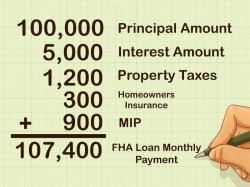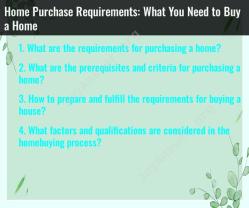How to analyze real estate properties?
Analyzing real estate properties is a crucial step in making informed investment decisions, whether you're considering buying a property for personal use, rental income, or resale. Here's a comprehensive guide on how to analyze real estate properties:
Set Your Investment Goals:
- Define your investment objectives, such as long-term appreciation, rental income, or a combination of both.
- Determine your budget and the amount you can comfortably invest in real estate.
Market Research:
- Research the local real estate market where you intend to invest. Understand factors like supply and demand, trends in property values, and the economic outlook for the area.
- Identify neighborhoods or areas with growth potential and low crime rates.
Property Type:
- Decide on the type of property you want to invest in, whether it's residential (single-family home, condominium, apartment complex), commercial (office space, retail, industrial), or other real estate niches like vacation rentals or multi-family properties.
Financial Analysis:
- Calculate your potential return on investment (ROI). This involves comparing the property's expected income (rental income) to its expenses (mortgage payments, property taxes, insurance, maintenance, and property management fees).
- Determine the property's cash flow, which is the income left after covering all expenses. A positive cash flow is typically desirable.
- Calculate the property's cap rate (capitalization rate), which is the ratio of net operating income (NOI) to the property's value. A higher cap rate indicates a potentially better investment.
- Consider financing options and estimate your monthly mortgage payments.
Due Diligence:
- Conduct a thorough inspection of the property to identify any structural issues or necessary repairs. Hire a professional inspector if needed.
- Review the property's title and ownership history to ensure there are no legal encumbrances or disputes.
- Investigate the property's rental history and occupancy rates if applicable.
Location and Neighborhood:
- Evaluate the property's proximity to essential amenities like schools, shopping centers, public transportation, and healthcare facilities.
- Research the neighborhood's crime rates, school quality, and overall livability.
Comparable Sales (Comps):
- Analyze recent sales of similar properties (comparable sales) in the area to determine the property's fair market value. This helps you avoid overpaying.
Future Potential:
- Assess the potential for future property value appreciation. Consider factors like planned developments, infrastructure improvements, and neighborhood trends.
Property Management:
- Decide whether you'll manage the property yourself or hire a property management company. Consider the associated costs and your level of involvement.
Exit Strategy:
- Plan your exit strategy, whether it's holding the property long-term, selling for a profit, or transitioning to a different type of investment.
Legal and Regulatory Compliance:
- Ensure that you comply with all local and federal laws and regulations regarding property ownership, zoning, permits, and taxes.
Financing and Funding:
- Secure financing through a mortgage lender or explore alternative financing options if necessary.
Negotiation and Purchase:
- Negotiate the purchase price and terms with the seller or their agent.
- Review the purchase contract carefully, and consider hiring a real estate attorney for legal guidance.
Closing and Ownership Transfer:
- Complete the closing process, including property inspections, appraisals, and the transfer of ownership.
- Ensure all necessary paperwork is filed with relevant authorities.
Ongoing Management and Monitoring:
- After acquiring the property, continue to monitor its performance, maintain it properly, and adapt your strategy as needed.
Real estate analysis requires careful research, financial calculations, and due diligence. It's advisable to seek guidance from real estate professionals, including real estate agents, appraisers, inspectors, and attorneys, to help you make informed decisions. Additionally, ongoing education and staying updated on market trends are essential for successful real estate investment.












